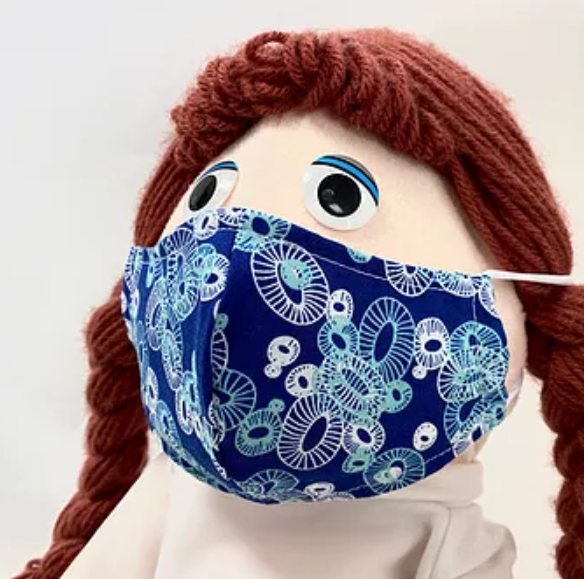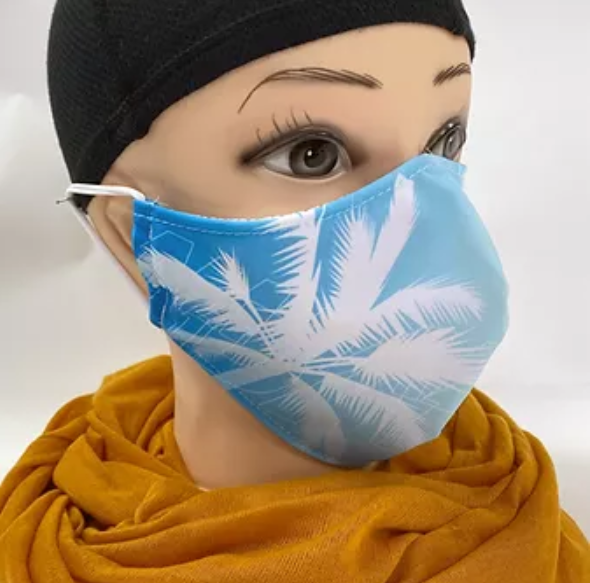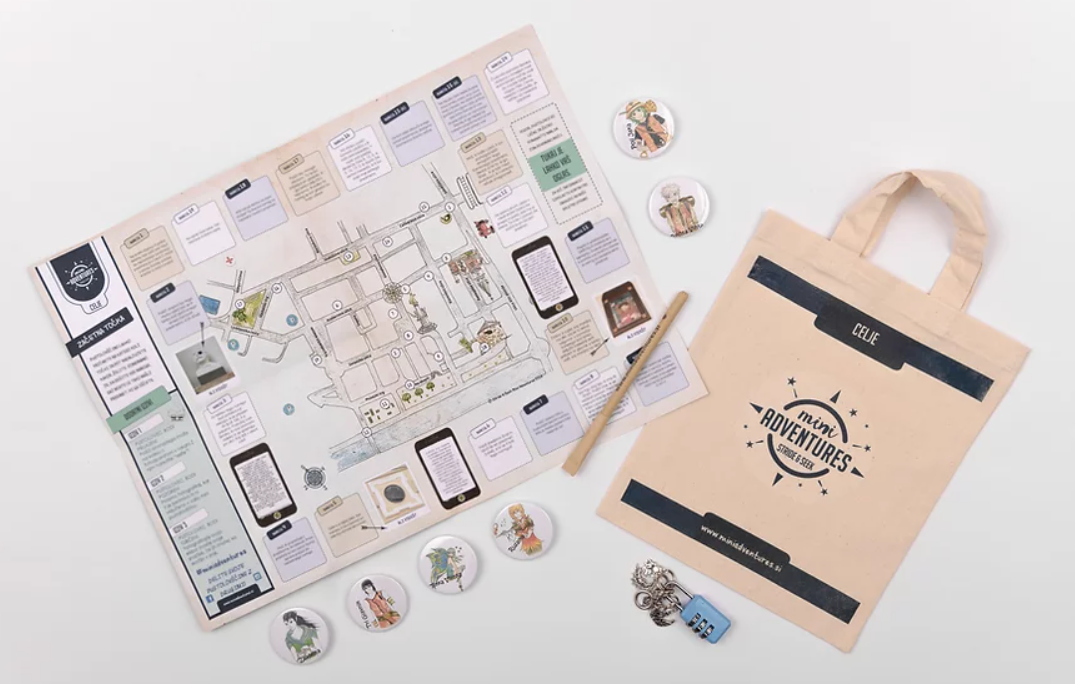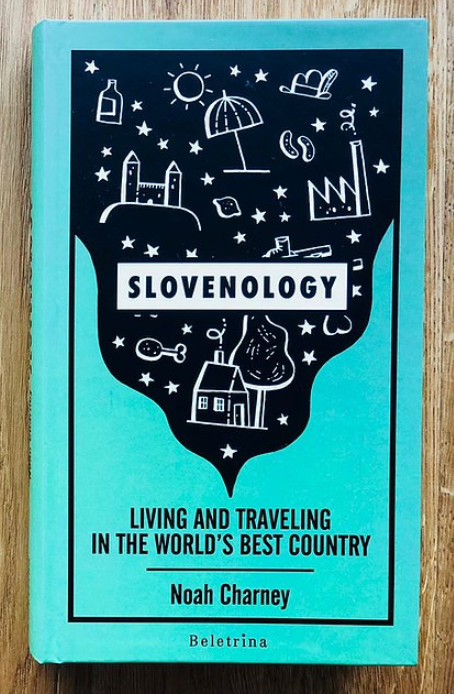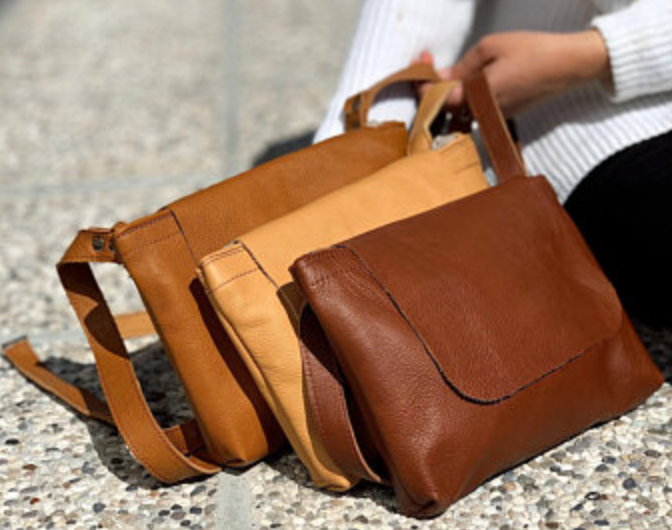Made in Slovenia
STA, 20 January 2021 - An international team of researchers headed by Marko Anderluh of the Ljubljana Faculty of Pharmacy and Nikola Minovski of the Chemistry Institute has synthesized molecules that could result in new treatments for super resistant bacteria.
The expert group demonstrated the mechanism of action of these new molecules for the first time, the Faculty of Pharmacy said.
This breakthrough will help develop new, more effective medicines to tackle one of the key global problems of the 21st century - anti-microbial resistance, which is one of the ten most dire threats to public health, according to the World Health Organisation (WHO).
The occurrence and spread of pathogens resistant to medicines jeopardise effective treatment of common infections.
"The main achievement of the researchers is the development of bacterial type II topoisomerase inhibitors (NBTI) with the innovative segment of the molecule. The produced molecules, which have been patented, have an extraordinary potent antibacterial effect since they are even more efficient in inhibiting the proliferation of bacterial cells."
The new molecules could boost the treatment of bacterial infections by affecting resistant bacterial strains that hardly respond to the existent antimicrobials.
The breakthrough has also proved the existence of special halogen bonds in biological macromolecules, which has not yet been identified in a biological system.
Four Slovenian scientists and six from the UK worked on the study, which took four years. Its findings were presented in a peer-reviewed paper in Nature Communications on 8 January (https://www.nature.com/articles/s41467-020-20405-8).
STA, 11 January 2021 - The word of the year 2020 according to the Research Centre of the Slovenian Academy of Sciences and Arts (ZRC SAZU) is karantena / quarantine, followed by kolesarjenje / cycling in second and 14 dni / 14 days in third place.
Apart from the 14-day period of isolation due to risky contacts which was later shortened to 10 days, quarantine was also used to refer to the lockdown in general.
Cycling was, however, a form of protest against the Janez Janša government during lockdown.
According to Katarina Keber from the Milko Kosec History Institute at the ZRC SAZU, quarantine was an archaic word which has become modern again. It is derived from an Italian phrase quaranta giorni, which means 40 days. This was the period of isolation, first introduced in 1377 in today's Croatia's Dubrovnik. Later it became known in other seaports as well.
ZRC SAZU also declared the sign language gesture of the year, which is "coronavirus" or "Covid-19". "Zoom" was in second place and "Beethoven" in third.
In the poem of the year category, there were two winners and 70 entries. Leto Prekleto (Damned Year) by Ranka Ivelja and Naša Vojna (Our War) by an anonymous author.
The poems were to contain all eleven words that were shortlisted for the world of the year among the 400 entries. The finalists were cepivo / vaccine, quarantine, cycling, mehurček / bubble, positiven / positive, predihovalnik / ventilator, rahljanje / easing, šolotožje/ schoolsick, zoom, 14 dni / 14 days and neleto / non-year.
The voting took place between 4 January until noon today, when the word of the year was declared. It receive little more than 1,000 of the 5,060 votes cast. Last year, 2,139 people voted, selecting podnebje / climate".
Leto prekleto, by Ranka Ivelja
Ne bom te pozabila, neleto prekleto,
ne bom te črtila, ne bom te ubila.
Jaz bom tvoj virus, neleto prekleto.
Plačalo boš, na glavo te bom obrnila.
Krohotalo si se, neleto prekleto,
s strahom morilo pozitivne in negativne, na ražnju obračalo naivne.
Raztegnilo si noč, stemnilo jutranje zarje,
v karanteno, neleto prekleto,
nagnalo si celo kolesarje.
Ampak ne, nismo se predali, neleto prekleto,
ljubili smo, kot že dolgo ne,
vse, kar smo izgubili,
bližino, objem, dostojanstvo,
v šolotožju, tišini in muki upora, neleto prekleto.
Jaz sem tvoj virus, neleto prekleto.
Prav potihem, da ne boš vedelo, sem ti zrahljala oklep,
ti iztrgala zoom, odvrnila vsak sum,
da se boš še povrnilo, neleto prekleto.
Ne 14 dni, prihodnje desetletje, neleto prekleto,
ne bom pustila, da boš dajal zavetje
tistim, ki so na predihovalnik pripeli vse nas, ves čas,
ki bi delali mehurčke iz pene laži, nagrabljene moči, neleto prekleto.
Jaz sem tvoj virus, neleto prekleto,
ne bom te pozabila, ne bom te ubila,
Samo na glavo te bom obrnila,
Naša vojna, by Anonymous
Poslušaj vnukec, malo se usedi,
ti bo nekaj zdaj razložil dedi,
pripravi škatlo si z bonboni,
je dolga zgodba o koroni.
Virus, vojna naše generacije,
pred začetkom velike inflacije,
ko ustavil se je celi svet,
ko morali smo prenehat živet.
So rekli, da bo hitro to minilo,
a se je 14 dni pomnožilo,
mine karantena prva, druga,
pa še kar se je vlekla kuga.
So prepovedali nam it v naravo,
kolesarjenje in vse drugo zdravo,
ko obljubili so ukrepov rahljanje,
se je spet poslabšalo stanje.
Življenje iz nas je bilo izžeto,
za vso človeštvo le neleto,
mehurček tu, mehurček tam,
pozitiven si šel na seznam.
Otroci rabili največji so pogum,
ko je šolotožje lajšal zoom,
propadali so lokali in podjetja,
večina že do prvega poletja.
Pa, moj vnukec, tole vedi,
da mlad zdravnik je bil tvoj dedi,
mi bili smo vedno v prvi vrsti,
vsak dan šteli ljudi v krsti.
Predihovalnik, OHIO, Venturi,
kisik je tekel po vsaki aparaturi,
roke smo redno razkuževali,
in v skafandrih anamneze jemali.
Vidiš, ušesa štrlijo mi na stran,
ni dovolj pomagal wuhobran,
maske smo dali na obraz,
če je bilo sonce ali mraz.
10 let je trajalo to stanje,
da so vsem razblinile se sanje,
cepivo je bilo sicer učinkovito,
a so se ga eni branili srdito.
Tako da, vnukec, ti tole povem,
rabimo še cepivo proti neumnim ljudem!
da boš nekoč, neleto prekleto, vendar leto.
STA, 16 January 2020 - Bird Buddy, a project of a smart bird feeder created by a predominately Slovenian team, has raised a total of EUR 4.19 million on Kickstarter, the global crowdfunding platform, thus becoming the most successful Slovenian project by far.
So far the most successful Slovenian campaign on Kickstarter was for electric bike Flykly, which collected around US$700,000 (EUR 570,000).
The goal of the Bird Buddy was to raise EUR 50,000, but the project raised EUR 700,000 in a matter of days.
As the campaign ended, the smart bird feeder became the 35th most successful Kickstarter project overall, according to information on the project's website.
The project that convinced a total of 22,924 supporters envisages a modern design bird feeder with a feed container and a detachable module that includes a small video camera with a microphone and a movement sensor.
Detecting the arrival of a bird, the sensor notifies the user by means of a wireless connection and a mobile app. The app also allows the user to take a photo of the bird.
Equipped with artificial intelligence, the app recognizes over 1,000 bird species. It can also recognise the bird when it hears it sing.
The app also makes it possible to organise and share bird photographs and offers advice on which feed is suitable for which species of birds.
Production of Bird Buddies is planned to start in mid-2021 and they are expected to be supplied to users in September 2021.
The team behind the project said that if they collected more than EUR 750,000, users would be offered the option of a sensor to notify them when the feed container is empty, and at EUR 950,000 a solar cell to charge the camera module battery would be added.
STA, 6 January 2020 - Radio Študent, a small independent radio station, is at risk of losing funding as the 2021 budget of its founder - the University of Ljubljana's Student Organisation (ŠOU) - no longer earmarks any funds for it, according to a press release from the radio station.
Radio Študent's management and editorial board say that the EUR 3 million budget passed first reading in ŠOU's newly-elected assembly on 30 December.
Even before that, the assembly changed the rules on ŠOU funding, which now say that ŠOU members get no money from the concession fee from student work.
The release also says that funds for the radio station, which was launched in 1969, has been falling for almost a decade.
In 2012 it received EUR 230,000, but only EUR 120,000 last year, during the Covid epidemic when the radio station intensified its reporting and programmes.
Radio Študent urged ŠOU, which represents some 60,000 University of Ljubljana students, to allocate at least EUR 120,000 for the radio station.
The radio station understands the budget is lower than in 2020 due to the epidemic, but believes that at least minimum shares of funds for institutions under the ŠOU wing should be preserved. It also wants to be included in all talks on its "uncertain future".
"The challenge of surviving faced by Radio Študent today is unprecedented in its entire 50-year history," the release says.
The radio station has more than 200 young contributors, who make 17 hours of live radio shows a day.
STA, 22 December 2020 - On Wednesday, 23 December, Slovenia will mark three decades since a decision that is seen as a landmark in the nation's history: an independence referendum at which the overwhelming majority opted to leave Yugoslavia. The referendum results were declared three days later, on what is now celebrated as Independence and Unity Day.
Following a rising wave of pro-democratic movements in the 1980s, the first free multi-party general elections were held in April 1990. The Democratic Opposition of Slovenia (DEMOS) won, formed a government and completed key steps towards the independence referendum in cooperation with the opposition.
Lojze Peterle, the first prime minister, says the idea for a referendum had been around at the time DEMOS was formed, with the final decision to hold a vote taken at a 9-10 November meeting in Poljče, at which members of a commission that drafted Slovenia's constitution helped convince DEMOS deputies to confirm the proposed vote.
While the opposition wanted to shift the referendum to the spring of 1991, it eventually accepted the December date. In return, DEMOS and the government acquiesced to the rule that the referendum would be successful if at least half of all the eligible voters opted for independence. DEMOS had initially wanted an ordinary majority.
On 6 December 1990, the representatives of political parties and deputy groups in parliament signed a compromise agreement in which all signatories pledged to work together in preparing and executing the referendum. They stated that they were aware of the historical significance of the decision.
Based on that agreement, the parliament passed a law on the independence referendum. The vote was unanimous, with four MPs abstaining.
"The signing of the agreement was very important since it was a strong message to the people that Slovenian politics is united," Peterle has told the STA. Milan Kučan, president at the time, said the agreement had helped overcome distrust.
On 23 December, independence was confirmed with a 95% majority on a turnout of 93.2%, which means that over 88% of all eligible voters voted in favour. When the results were proclaimed shortly after 10pm, DEMOS leader Jože Pučnik famously said that Yugoslavia no longer existed. Both Peterle and Kučan say they never doubted the outcome of the referendum.
The results of the referendum were officially proclaimed on 26 December, which has since been celebrated as Independence and Unity Day. Immediately thereafter, proceedings for a formal declaration of independence were initiated and Slovenia declared independence on 25 June 1991.
Due to the coronavirus epidemic, celebrations of the landmark event will be muted.
President Borut Pahor will host an open day and address the people via video. The ceremony itself will be a pre-recorded TV show with an address by Prime Minister Janez Janša, while the National Assembly will hold a brief ceremonial session.
STA, 3 December 2020 - Feri Lainšček, a writer and poet from Slovenia's north-easternmost region, and Marko Mušič, an architect who has made a name for himself in Slovenia and throughout the former Yugoslavia, are the winners of the Prešeren Prizes for lifetime-achievement for 2021. The country's top accolades for artistic accomplishments will be presented on 7 February.
Lainšček, 61, is being honoured for "literary achievements whose artistic value has been enriching the treasury of Slovenian culture for almost 40 years".
Lainšček, often referred to as the poet of the Prekmurje plains, has established himself as a novelist and poet as well as a short-story, youth and children's fiction writer, film screenwriter and author of song lyrics.
Mušič, 79, is lauded for his unique architectural path, his humanism, known for his "particular, at times controversial perspective standing against the 'flow of the time' and architectural trends and which still aspires to 'architecture for all times'".
Active in the field of architecture in Slovenia and the broader Balkans region for almost 60 years, Mušič has a special place in this space, the justification reads.
The winners of the two Prešeren Prizes and of the Prešeren Fund Prizes for accomplishments over the past three years were announced by the Culture Ministry on Thursday as Slovenia marks the 220th anniversary of birth of poet France Prešeren.
The anniversary of Prešeren's death on 8 February is celebrated as Culture Day with the Prešeren Prizes conferred at the main ceremony on the eve of that day.
The Prešeren Fund Prizes go to poet Brane Senegačnik, violinist Lana Trotovšek, theatre director Tomi Janežič, film director Matjaž Ivanišin, painter Sandi Červek and the architects Budja-Jereb-Majoranc.
The winners are picked by the management board of the Prešeren Fund with the help of expert commissions. The board is chaired by Jožef Muhovič, a painter, art theoretician and philosopher, with mezzosoprano Bernarda Fink Inzko as vice-chair.
STA, 2 December 2020 - This year's Zois Prizes for lifetime achievement in science and research have been bestowed on researcher Tamara Lah Turnšek of the National Institute of Biology and University of Ljubljana professor emeritus Radovan Stanislav Pejovnik. The recipients were presented in a documentary showed on TV Slovenija last evening.
Lah Turnšek has been striving for a comprehensive approach to scientific work. Her breakthrough discovery of a protease enzyme named cathepsin S early on in her career has been followed by biomedical studies focusing on inflammatory processes and cancer, the justification reads.
Currently, she is researching malignant brain tumours. Lah Turnšek has been working with Slovenian as well as foreign research or medical institutions and striving to promote science in the public.
She has also paved the way for women in her field and has been fighting for equality of opportunities.
Pejovnik is a researcher and professor who has left an indelible mark in sintering theory or liquid phase sintering, core technology for coming up with ceramic products, such as bricks or highly complex electrical engineering components.
Almost 30 years ago he gathered a group of young people around him to launch a pioneer study into lithium batteries. Slovenia is one of the leading countries in this field also due to his efforts, the justification reads.
This year's Puh Prize for lifetime achievement went to researcher Janez Trontelj, the doyen of Slovenian microelectronics studies and the head of a microelectronics lab at the Ljubljana Faculty of Electrical Engineering.
He has been running the designing of microelectronics circuits for more than 50 years and has contributed to a number of Slovenian companies making a name for themselves abroad.
An honour called Ambassador of Science of the Republic of Slovenia was also conferred. This year's recipient is Boštjan Kobe, professor of structural biology at the University of Queensland in Australia and a member of the Australian Academy of Science.
He has been researching the role of the proteins' spatial structures in the immune system response of animals and plants and is widely acclaimed in the international scientific community. Kobe has also been cooperating with researchers in Slovenia.
The documentary, which showcased this year's recipients, also featured President Borut Pahor, who stressed that these accolades were Slovenia's top honours in science, thanking the recipients for their efforts and accomplishments.
Pahor noted that Slovenian scientists were gaining prominence abroad and warned that it was key to attract them back home or at least maintain ties with them.
He pointed out that there was not enough research funding in Slovenia and urged a re-think on that since science, he believes, is key for our future.
STA, 23 November 2020 - The Slovenian Book Fair will get under way on Monday, this time moving online for the first time in history. The week-long event will feature a virtual fair presenting 97 publishers, while the schedule also includes over 100 online events. Spain is the honorary guest country this year.
The 36th iteration of the country's main book event, which is usually hosted by the Cankarjev Dom arts centre, will open with a literary event whose keynote will be delivered by Niko Grafenauer. The poet is celebrating his 80th birthday, which will be marked with a special ceremony on Tuesday.
The virtual fair segment will run under the slogan Apart But Together Nonetheless. The Chamber of Book Publishers has joined forces with Cankarjev Dom to organise an online exhibition that will include the possibility to buy books and a diverse programme for the general and expert public.
Exhibitors will be able to present themselves in an e-catalogue and on a calendar of virtual events. The visual design is based on an illustration made by Chinese-Slovenian artist Wang Huiqin for a book about traveller and author Alma Karlin (1889-1950). Originally the fair, if held at Cankarjev Dom, was meant to be dedicated to Karlin.
The featured Slovenian city at the fair this year is Novo Mesto, while Spain is the honorary guest country. The programme includes debates with Spanish authors Olga Novo and Juan Bonillo, both recently celebrated with national honours for poetry and prose. Publisher Družina will moreover host an online talk with Catalan writer Pilar Rahola.
Moreover, in cooperation with French Institute and publisher Mladinska Knjiga, a talk will be organised with French author David Diop, while the Italian Institute and publisher Totaliteta will host Italian author Paolo Cognetti.
Several more foreign authors will participate at the fair, including Ruediger Wischenbart, Carlo Carenho, Arunas Gudinavičius, Alma Čaušević, Miguer Barrero, Tore Slaatta and Helge Ronning.
A number of awards will be conferred, including the award for the book of the year, for the best debut, and the Schwentner Award for exceptional contributions to publishing.
According to the head of the fair's managing board, Zdravko Kafol, this is the first time in the fair's history that the organisers were faced with the dilemma of what kind of a fair to hold. Originally the idea was to have a hybrid event, intertwining online and live events but this became impossible as the epidemiological situation deteriorated.
Kafol said their role models had been the Göteborg and Frankfurt fairs, although the latter received EUR 6 million to develop a digital platform. What has been conceived as the biggest Slovenian online fair, will now host more than 100 events prepared by 97 publishers on a special YouTube channel.
Kafol told the STA the organisers expected at least as many visitors as the live event attracts and 20-30% of the "live" sales. Given that the participants have no other costs, this would be a "good result", he said, noting that a recent Croatian fair without any accompanying events exceeded all expectations by generating a third of "live" sales.
Kafol's message to the book industry is to join forces in what is arguably the toughest time in the last 50 years. Bookshops were closed for 50 days and they are closed again, 600 booksellers are on furlough, he said.
"Online sale is becoming increasingly important but it cannot replace the loss of revenue. In the first, spring wave of the epidemic, the industry lost EUR 2.5 million, about 160,000 fewer books were sold. Only through cooperation and connectivity, joint projects, can we be stronger," he said.
The official website is here
Looking for gift ideas for Slovenian products and experiences? We put together a selection of the best #MadeInSlovenia gifts for Slovene-lovers – with prices from a few euros, to a few hundred euros.
This year, more than ever before, it’s important to support our local Slovene brands, companies and products. So – why not vote with your wallet and choose one of these great Made In Slovenia products for your next Christmas or birthday gift?
Whilst most Slovenian gift lists stick to the tried and tested Slovene salt, honey and lace products, we’ve dug deeper into what Slovenia has to offer to bring you a range of interesting and original Slovenian gift ideas that might surprise you – from beer to books, backpacks to bikes – all made here in The Sunny Side of the Alps.
Under €10
Slovenian-made Masks
Dali is a long-running family company founded by a former professional parachutist that makes pro-level ski-jumping, rowing and running gear. However, due to the COVID-19 pandemic, they have added an additional product to their line: masks. Show your support for Slovenia with one of their fun and colourful masks for kids or adults. Price: from €4.50. Buy: https://www.dalisport.com/shop-1
Natural Slovenian Creams, Scents and Soaps
Nona Luisa handmakes cosmetic and health products, with a philosophy of eco-friendliness in the beautiful Brda area. Selling a range of products from soap bars to bath bombs, all products are made in small batches, with carefully selected ingredients and minimal packaging. Price: Face creams start at €2.50. Buy: https://nonaluisa.com/home/shop/?lang=en
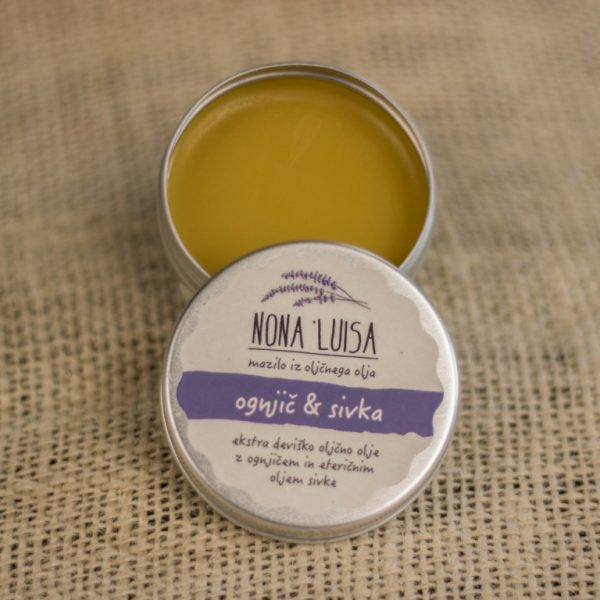
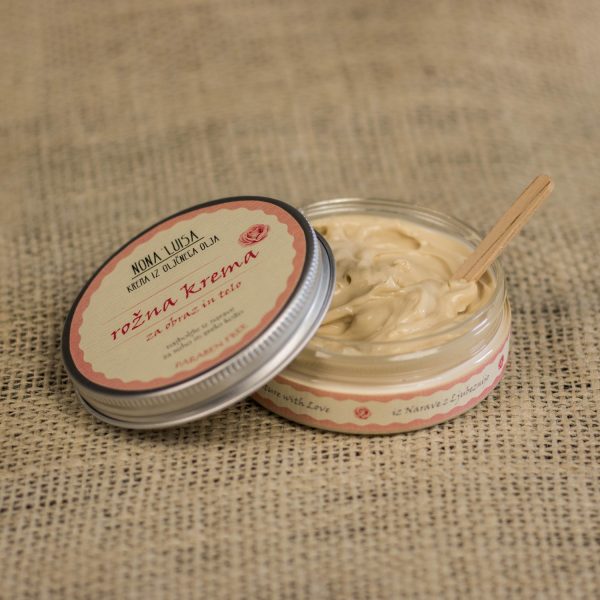
Environmental-friendly Slovenian Cosmetics
Madres is a Slovenian company that makes cosmetics, oils and deodorants, using only natural food-quality ingredients and are vegan, biodegradable, free of harmful chemicals and bear the ‘cruelty free’ label. Price: travel-size oils start at €10. Buy: https://madres.si/collections/vsi-izdelki
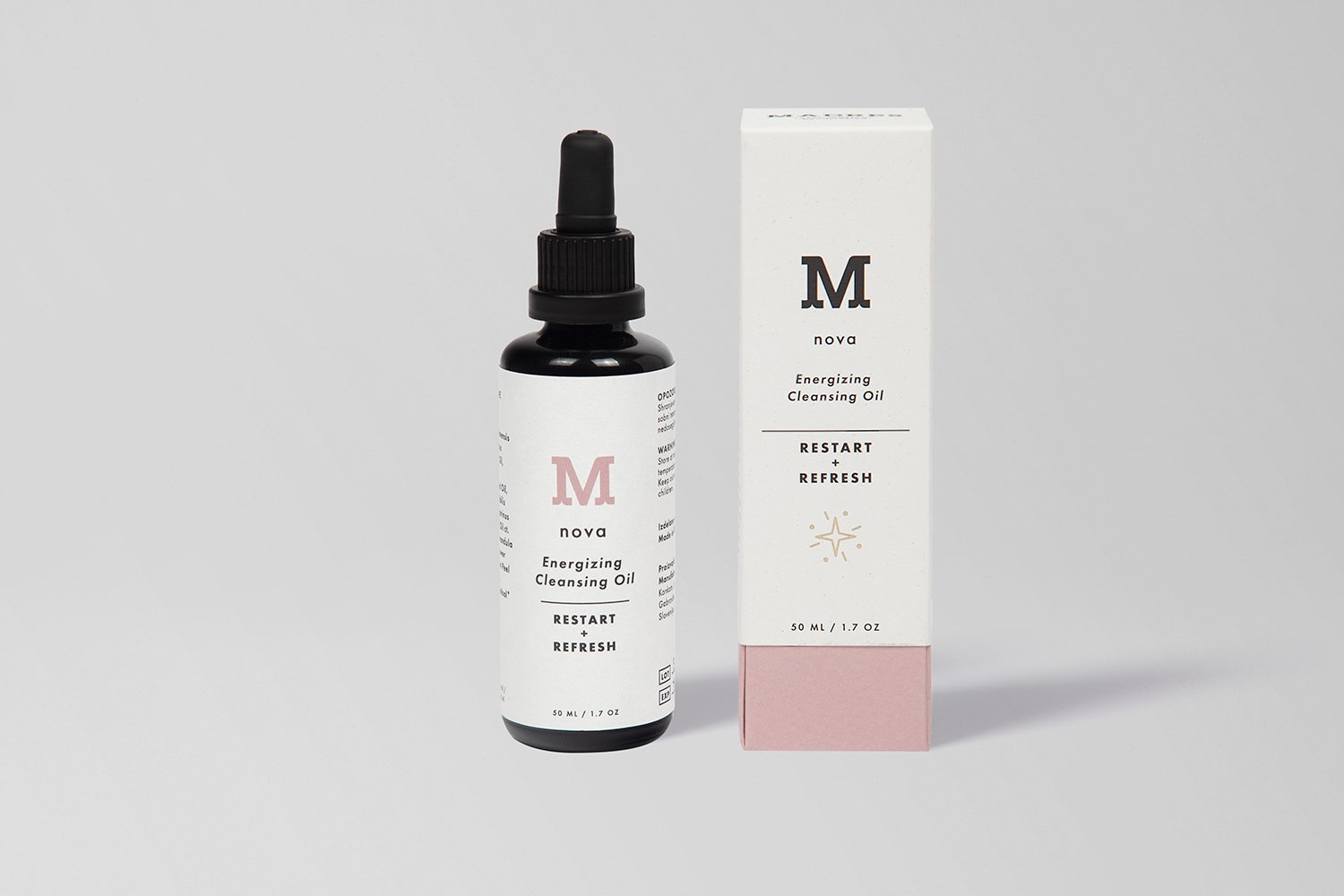
Slovenian Cheese
Like most European countries, Slovenia has a long history of cheese-making. Pustotnik Farm offers one of the best selections of Slovenian cheeses, both young and mature, made from cows’, goats’ and sheep milk. They also sell other delicious dairy products including whey, yogurt and butter. Price: from €3. Buy: https://www.kmetijapustotnik.si/en/products/
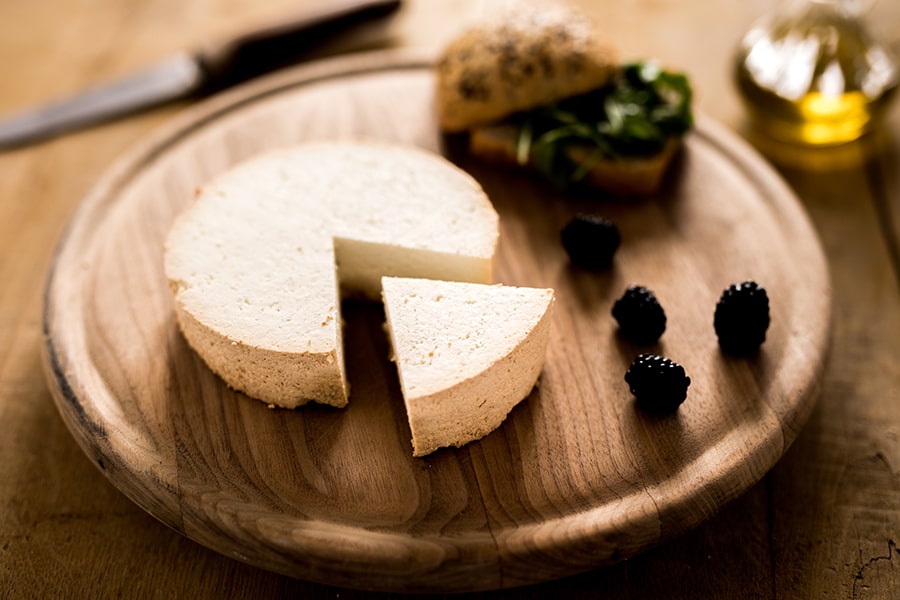
Slovenian Craft Beer
The craft-beer scene in Slovenia has exploded over the last decade, and Slovenia now has over 100 microbreweries making top stuff, such as Human Fish, Tektonic and Lobik. With far too many options to discuss here, your best bet for getting the finest amber nectar is to head to one of Ljubljana’s speciality craft beer shops where the knowledgeable staff can advise you on buying an interesting brew or two. They deliver too. Price: €3 and up. Buy: Visit Primoz (http://pr-primozu.si/ ) or Craft Room (https://craftroom.si/en/ )
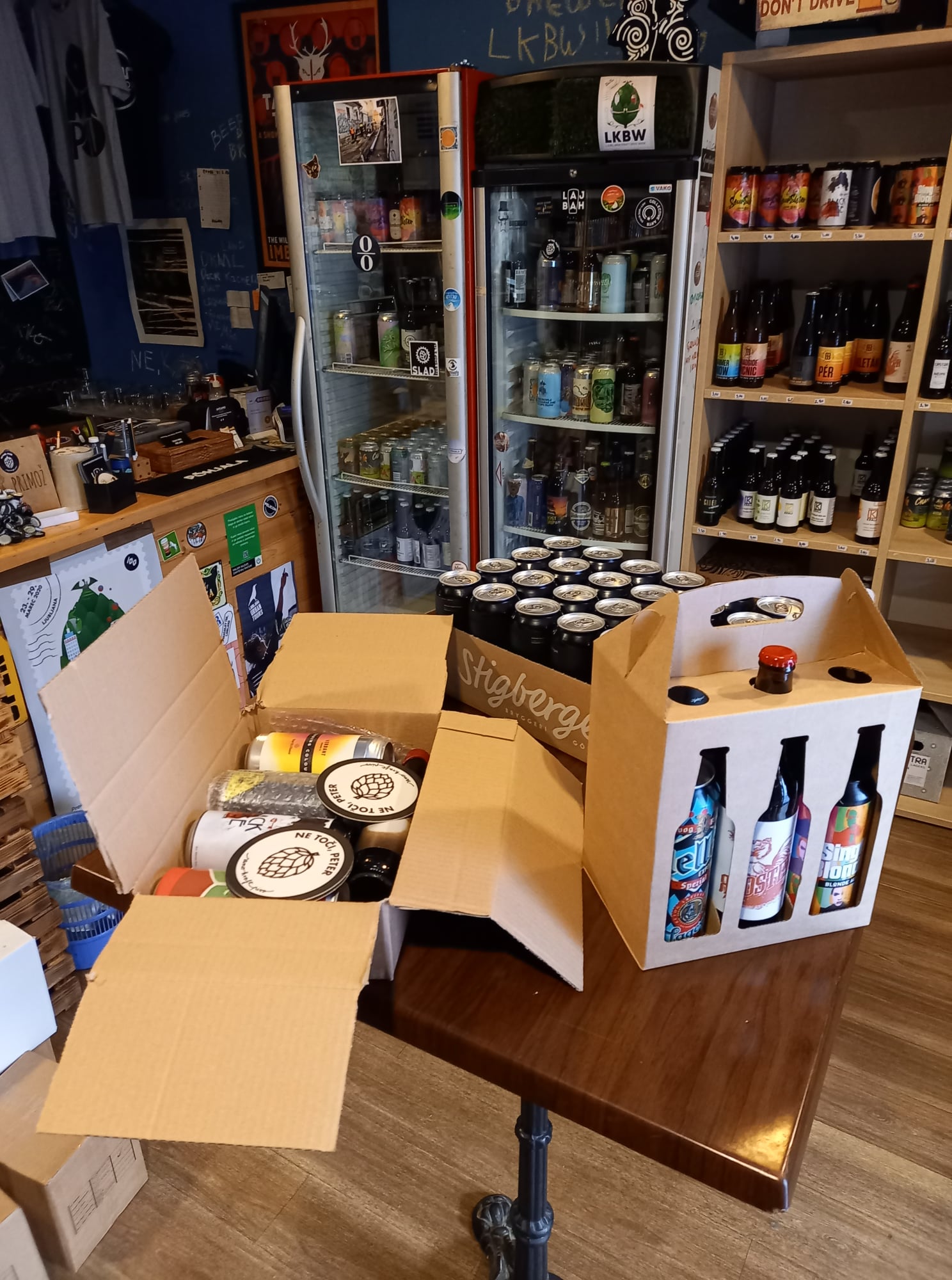
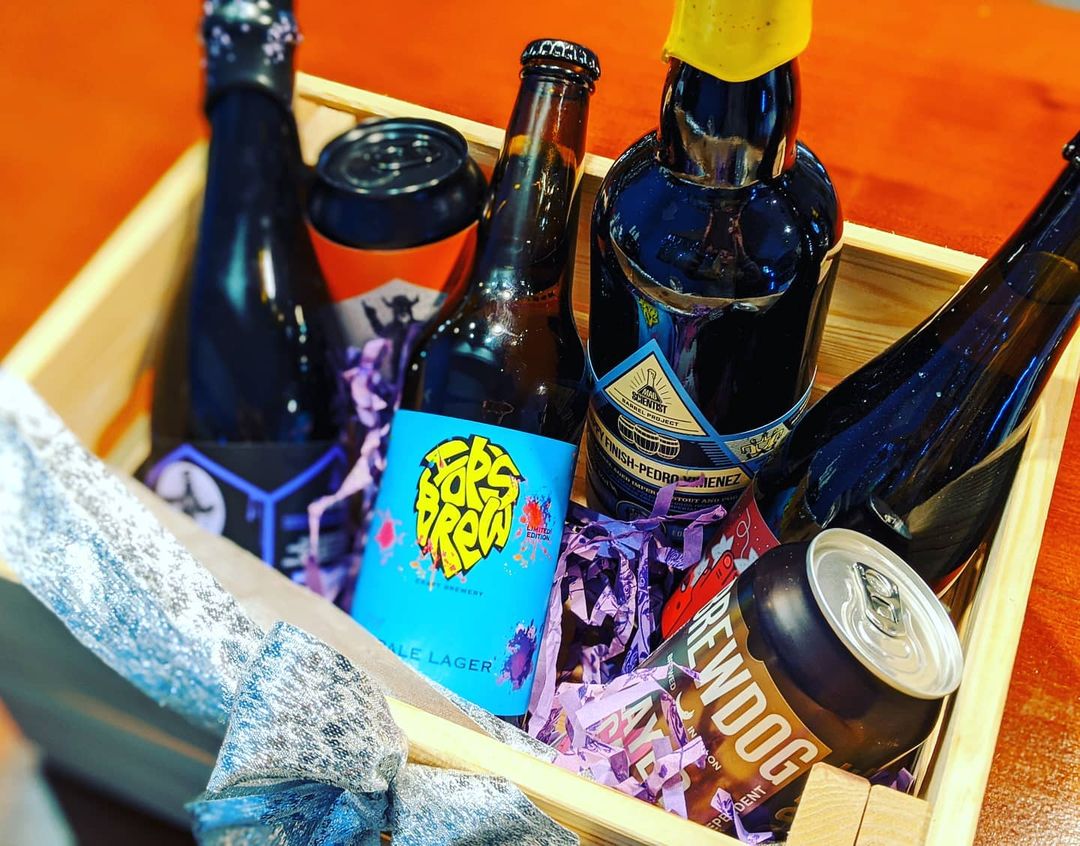
€25 or under
Slovenia-inspired Apparel
BREG Design is a new Slovenia-inspired t-shirt and apparel company that makes Slovenia designs that are different. Though there’s no arguing that Slovenia is a beautiful country, much of Slovenia’s merchandise is cliché and overly-cute. BREG is the antidote to that, making original artwork based on Slovenian culture, cuisine and language that avoids the sickly-sweet stereotype. The latest design is the TR3 Ljubljana shirt, that celebrates the ‘brutal beauty’ of Slovenia’s TR3 tower block. Each design is available on various garments, in several colours, and ships worldwide. Price: from €25. Buy: www.BregDesign.com
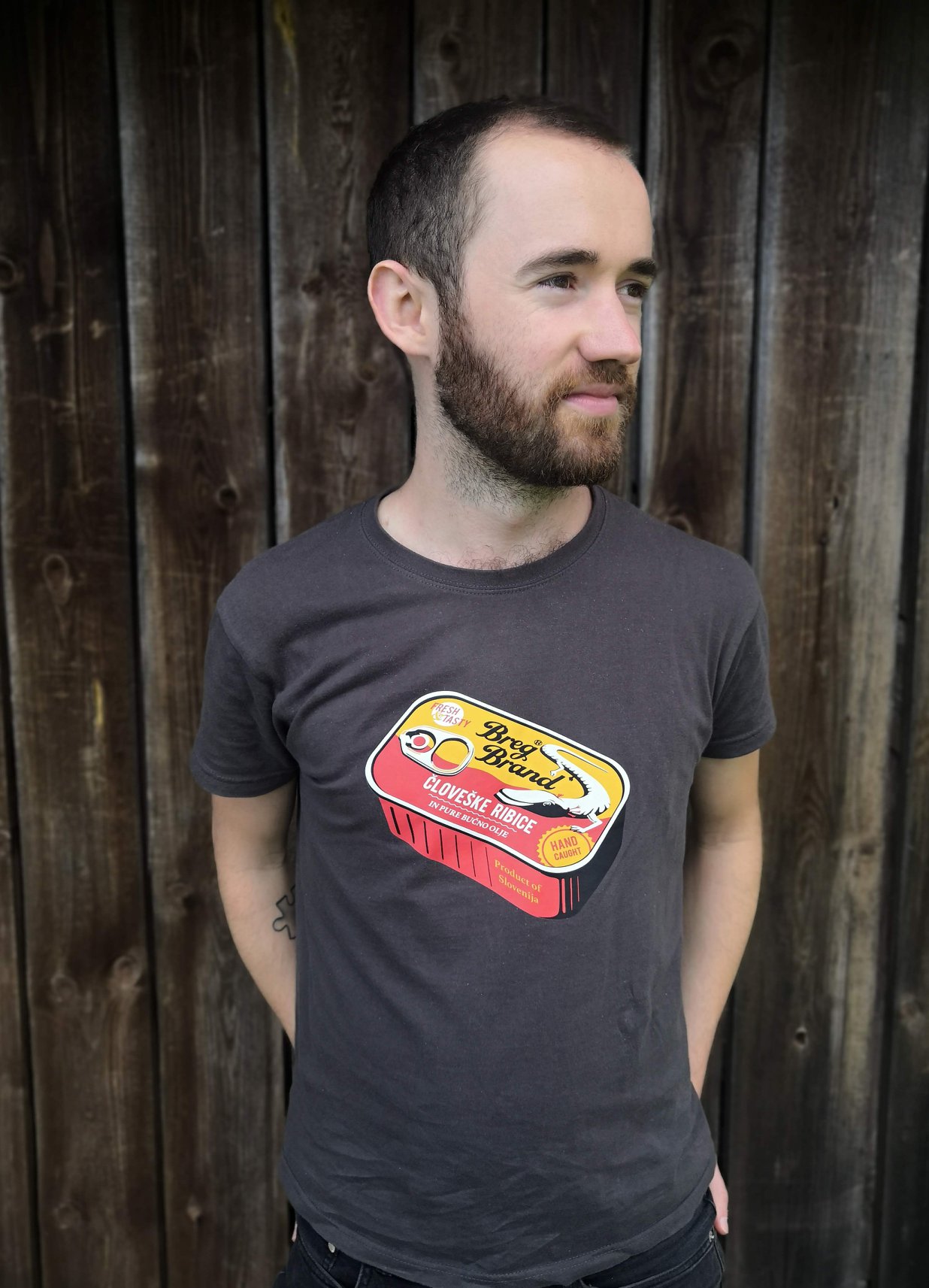
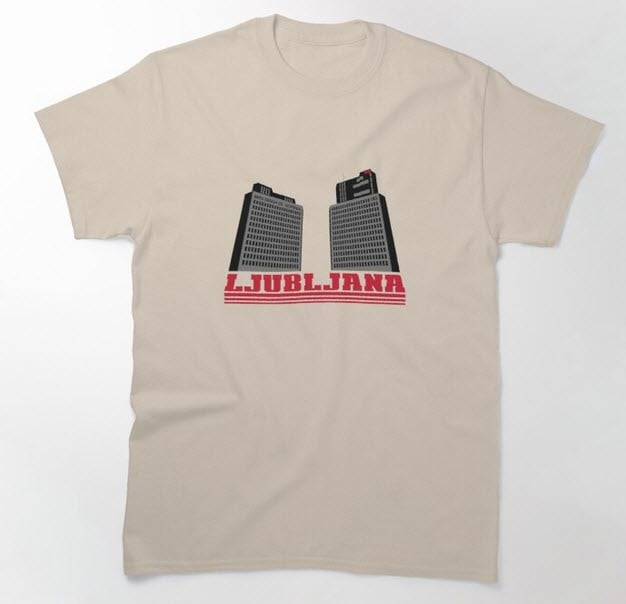
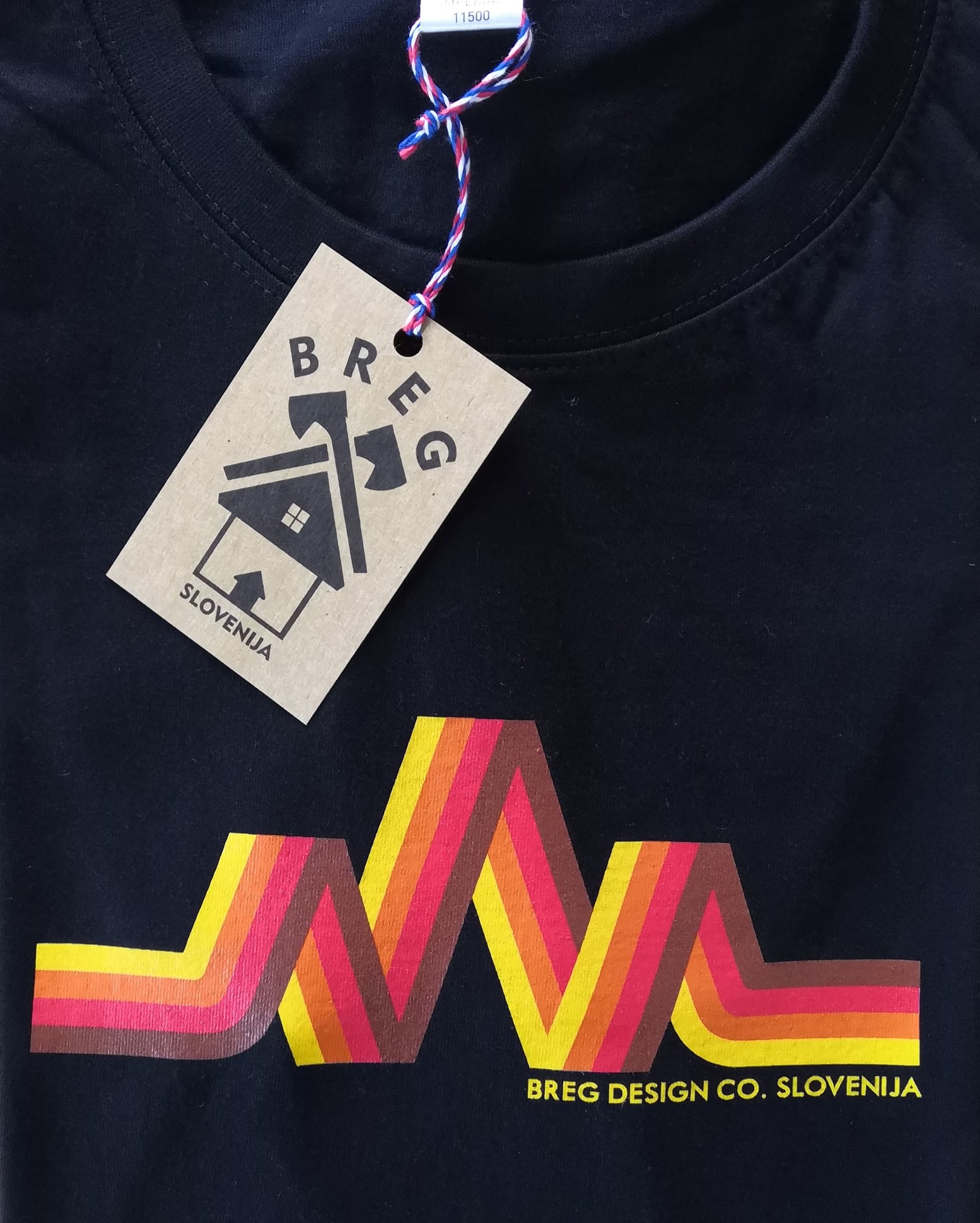
A Slovenian-made Backpack
Created by Slovenian sisters Dominika and Katarina Bučar, the BOO brand started with a simple drawstring backpack, back in 2015. Their popular line now includes handbags, bum bags, t-shirts and tops – all made in small batches in Slovenia. With complete focus on style, quality and an eco-friendly ethic, BOO offers a lovely range of gifts for women. Price: Microbags start at €25. Buy: https://www.boopacks.com/collections/all-products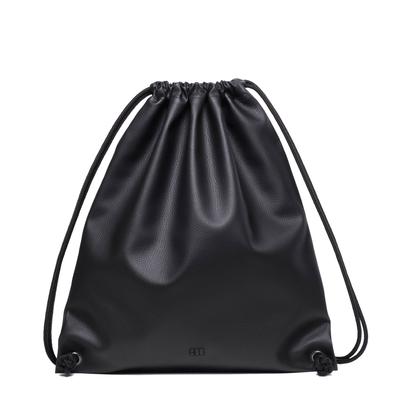
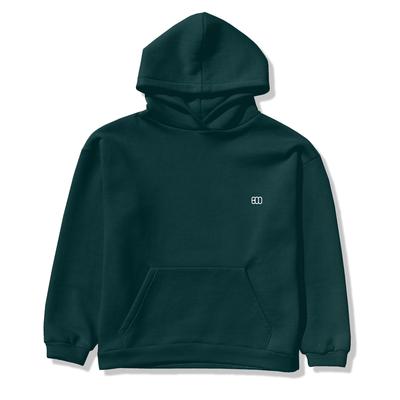
Slovenian Non-alcoholic Gin
As the global gin-market has exploded in the last 10 years, we are now seeing an interesting move into non-alcoholic spirits. Slovenian distiller Vera Spirits are based on Slovenia’s Adriatic coastline and use botanicals from the area and spring water from the Julian Alps to create their range of non-alcoholic spirits. An ideal gift for gin-lovers who don’t want the hangover. Price: bottles start at €23.90. Buy: https://veraspirits.com/collections/gin
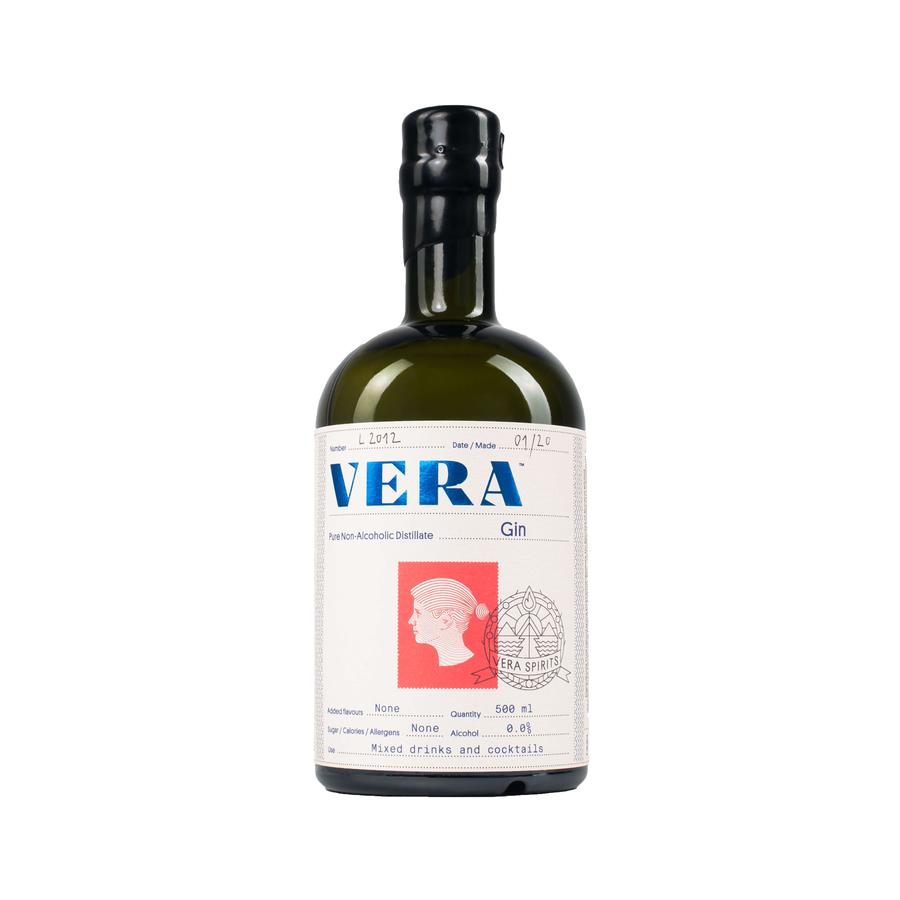
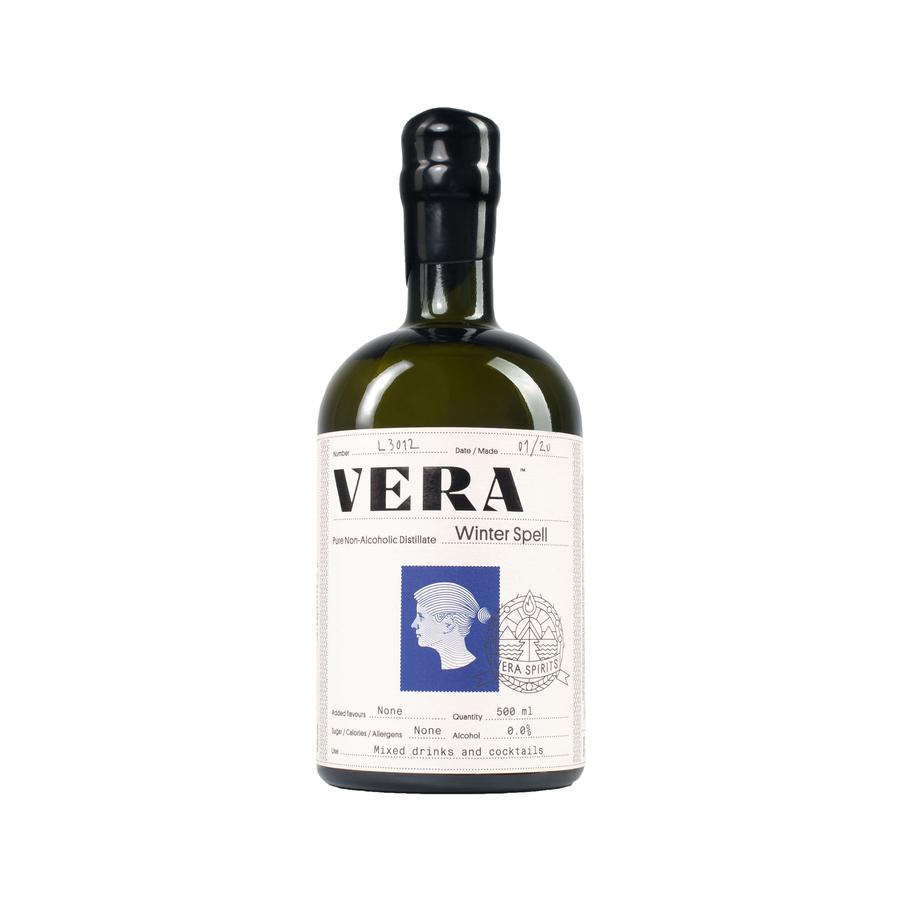
Speciality Slovenian Coffee
Speciality coffee has long-since arrived in Slovenia and there is now no shortage of great places to buy your bean-flavoured black stuff. At Crno Zrno café, Slovenia’s best-known Columbian - Alexander Nino Ruiz - imports beans from his homeland to Slovenia where he roasts them and serves it up at his café in Ljubljana. Fans of interesting, delicious and complex coffee flavours will love his bags of brilliant beans. Price: starting from €11.50. Buy: https://www.crnozrno.com/trgovina/
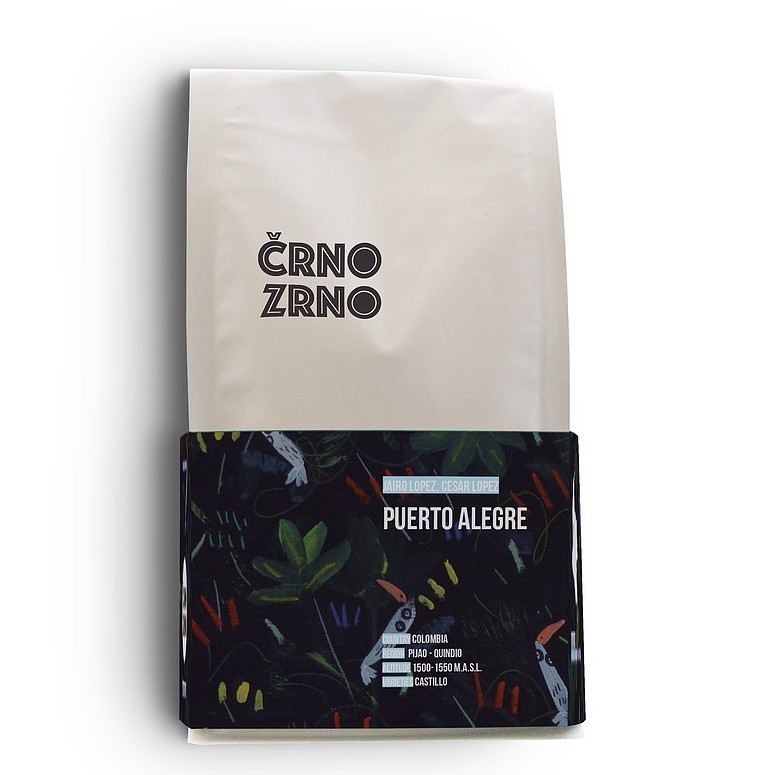
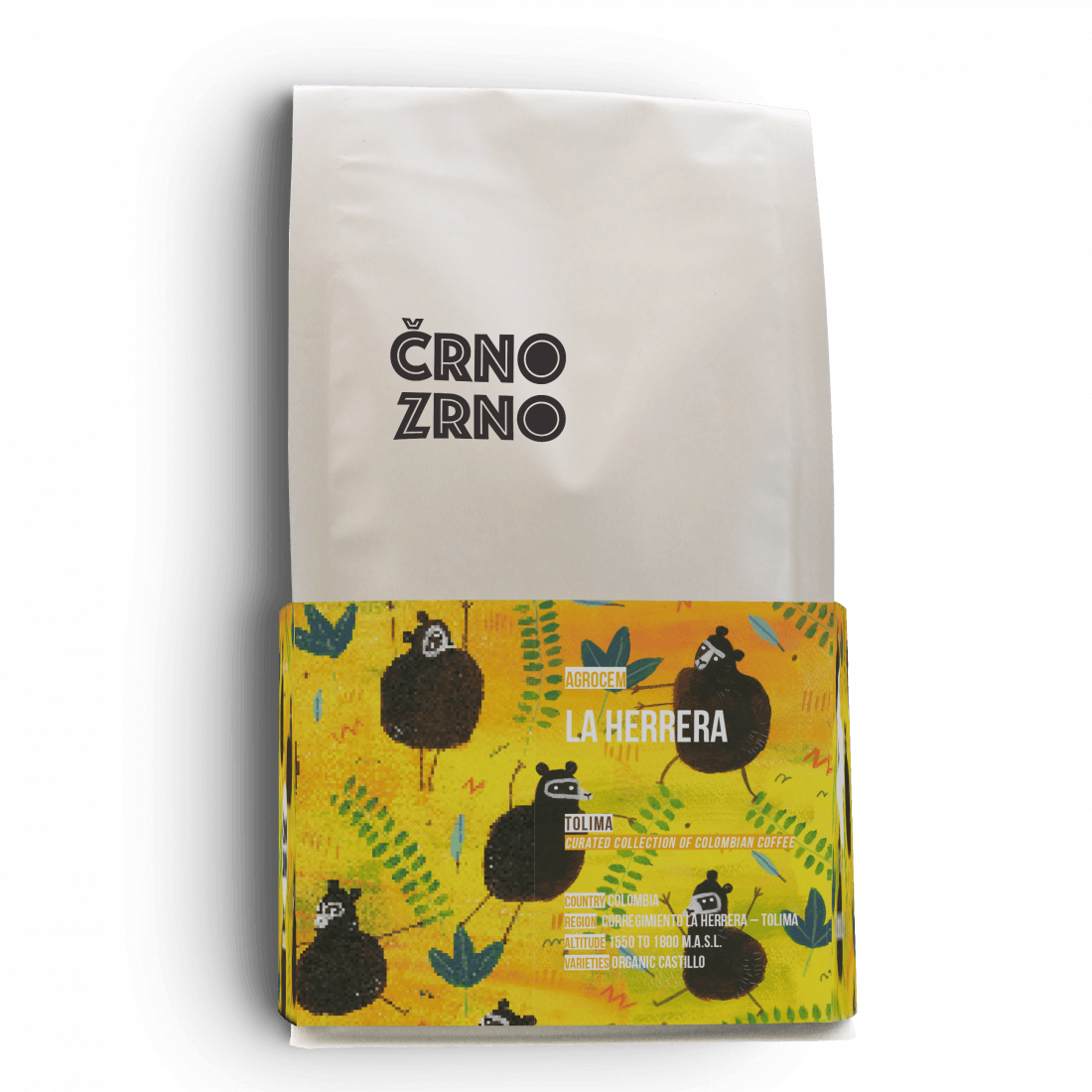
A Slovenian Mini-Adventure Game
Mini-adventures make sight-seeing games based on Slovenian (and other locations). Each adventure will take you on a journey to explore the sights of each place, whilst hunting for magical items and finding and solving clues. These are a lovely way to engage children, families and friends, by solving a quest and digging deeper into locations such as Koper, Kamnik and Kranj. Price: €25. Buy: https://www.strideandseekminiadventures.com/buy-mini-adventures
Slovenology – the book
Penned by Slovenia’s celebrity American – Noah Charney – Slovenology is an excellent read for anyone with an interest in Slovenia. Part autobiographical, part travelogue, part academic, this brilliant book explores many aspects of Slovene culture, from marriage to movies and is a must-read for anyone living in or loving Slovenia. Price: €19. Buy: https://www.slovenology.co.uk/buy-the-books
The Slovenia Book
‘The Slovenia’ are a Slovene publishing house who produce a steady stream of quality books about Slovenia but their flagship tome remains: ‘The Slovenia Book: Top 100 Destinations’. Now in its 3rd edition, it features detailed descriptions and beautiful pictures of the best Slovenia has to offer, along with interesting interviews with renowned Slovenian characters. This is a great gift for Slovene-fans, serving as both an inspirational coffee-table book, as well as a practical travel guide. Price: €19. Buy: https://the-slovenia.com/product/the-slovenia-book-top-100-destinations-3rd-edition-2/
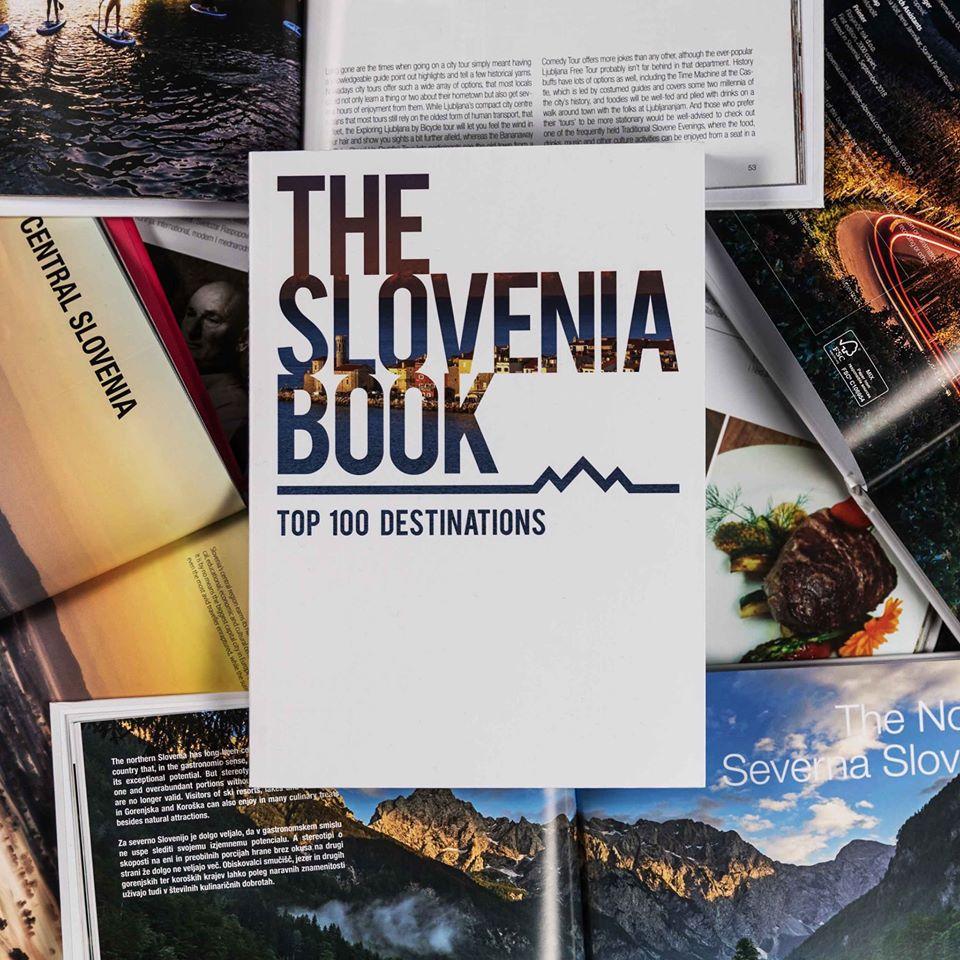
Handmade Slovenia Leather Bags
Gloria Bags is a one-woman show who makes beautiful, one-off, high-quality handmade leather bags and accessories. A Slovene artist, based just outside of Ljubljana, she personally designs and makes every item, using leather supplied from vendors who treat animals humanely and use them for food purposes and not just for leather. Price: zip purses from €20; bags from €35. Buy: https://www.gloriabags.com/shop
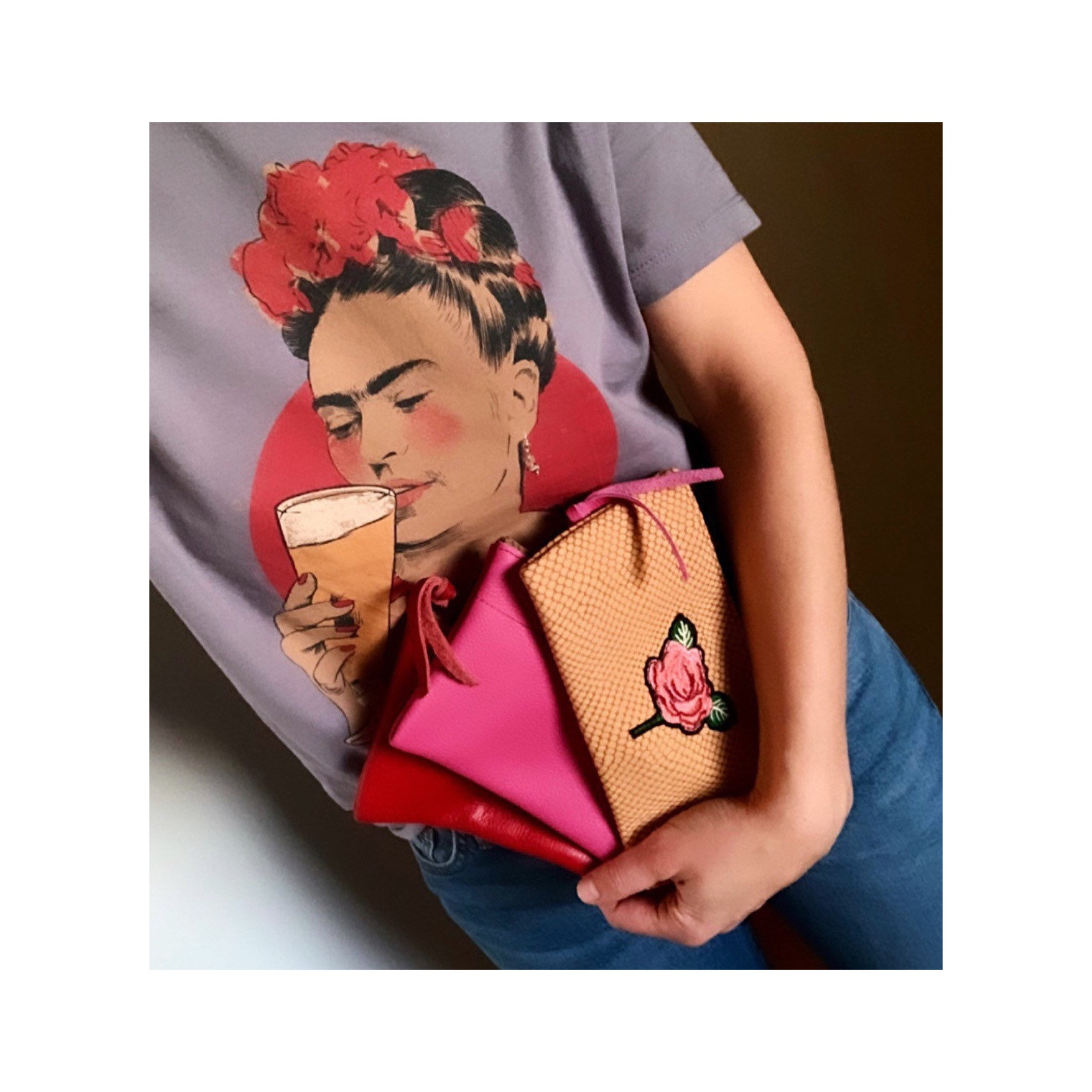
Under €50
Access to the world’s greatest farmers’ market
For foodies and anyone interested in supporting local food production, a subscription to Cultisan – ‘the world’s greatest farmers’ market in the palm of your hand’ is a great gift. Though not exclusively selling Slovene produce, there are many made-in-Slovenia products featured and the CEO and Founder – Jason Hartley – is a long-time Slovenaphile based here in Slovenia. A subscription will get you access to their exclusive online farmers’ market, with top-quality and rare food items bought direct from the farmers and makers, all curated by the Cultisan team and celebrity chefs, shipped to your door for free. Price: Taster Subscriptions start at £25 (€28). Buy: https://cultisan.com/
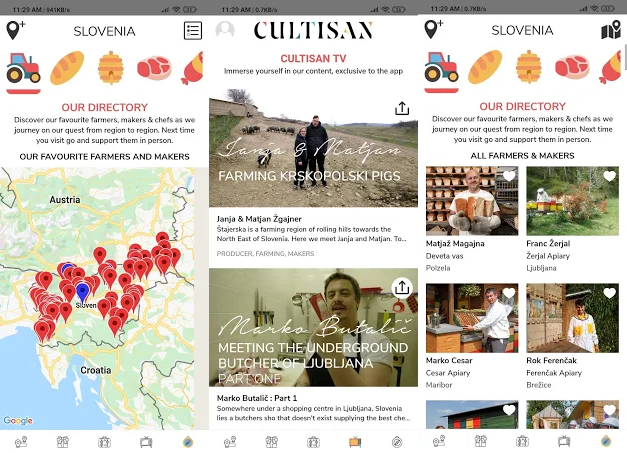
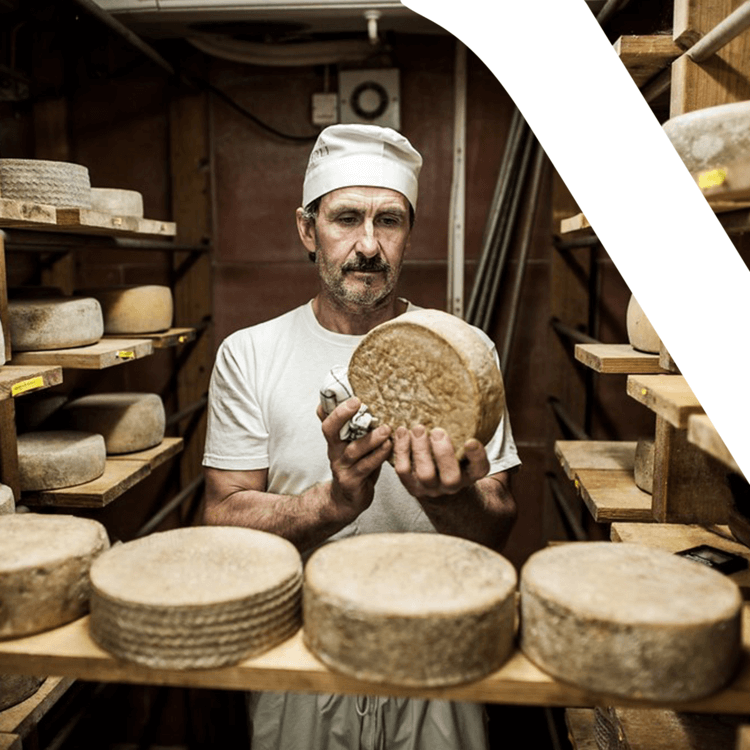
Slovenian Alcoholic Gin
If you’re looking for some ABV with your G&T, then consider a bottle of Broken Bones Gin. They offer a range of gin varieties, all made in Slovenia using Slovene botanicals such as rose-hip and linden flower. Broken Bones have won several prizes for their gins so a bottle of this Slovene spirit will be warmly received by any lover of a good tipple. Price: from €34.95. Buy: https://www.brokenbones.si/shop/gin
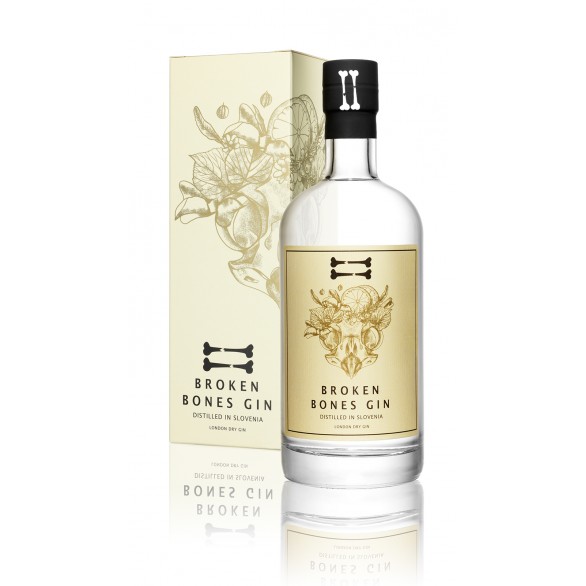
A Good Luck Slovenian Fairie
Handmade by a Slovene mother-daughter team, Rozinka make fairies, wooden mushrooms, floral headbands, decorations and jewellery at their small workshop in Slovenia. The duo have been crafting their creations for 20 years, which make an ideal gift for lovers of cuteness. Price: from €27 Buy: http://www.rozinka.com/
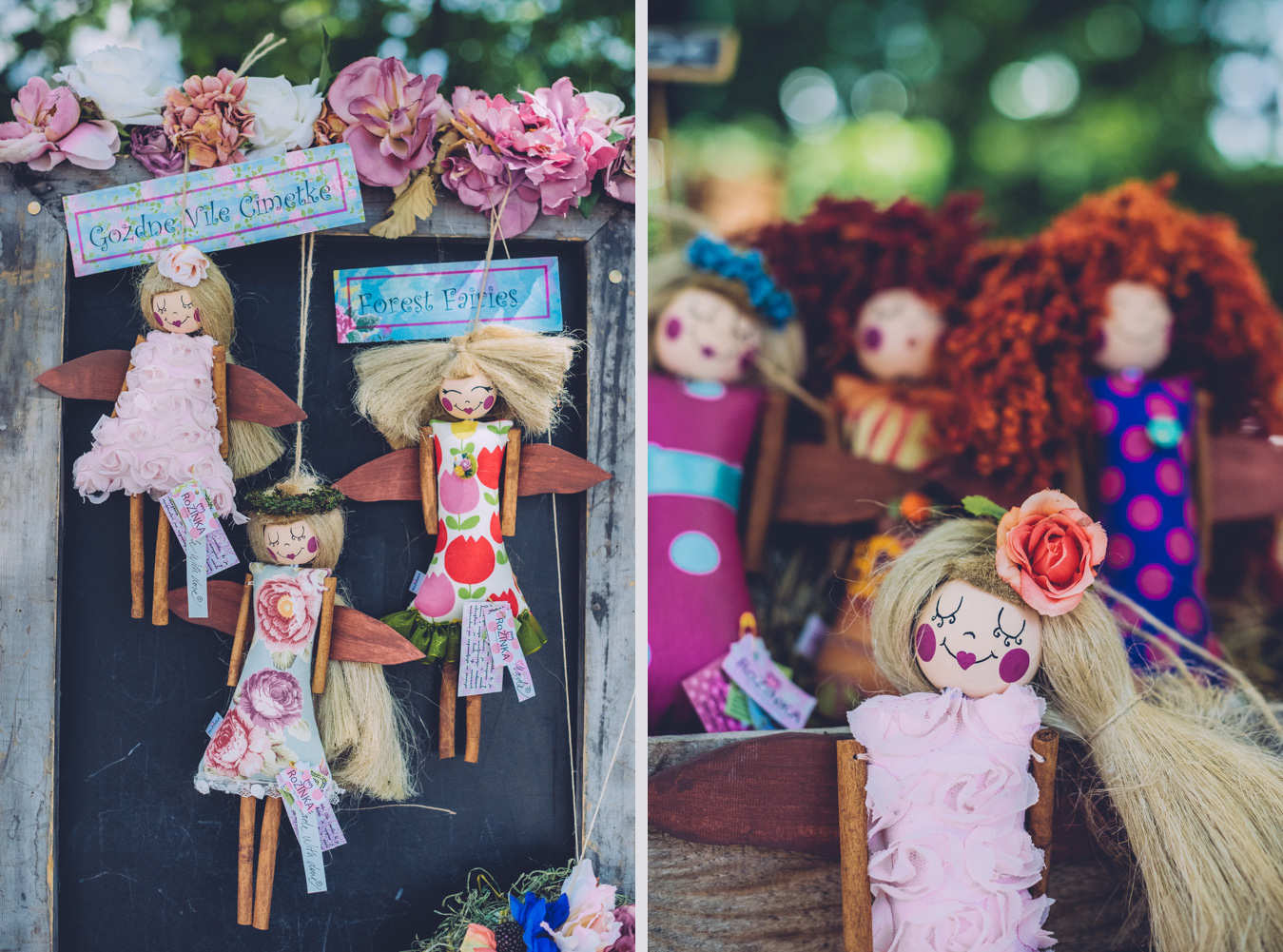
Slovenian Scenery: prints, pictures and posters
Ian Middleton is an English photographer based in Slovenia. His work includes incredible shots of Slovenia’s lakes, coastline, mountains and marshes. One of his beautiful prints is an ideal gift for anyone who loves and lusts after Slovenia’s gorgeous landscape. Price: Posters start at €28. Buy: https://ianmiddletonphotography.com/photo-galleries/standard-photo-galleries/photos-of-slovenia-standard-galleries/
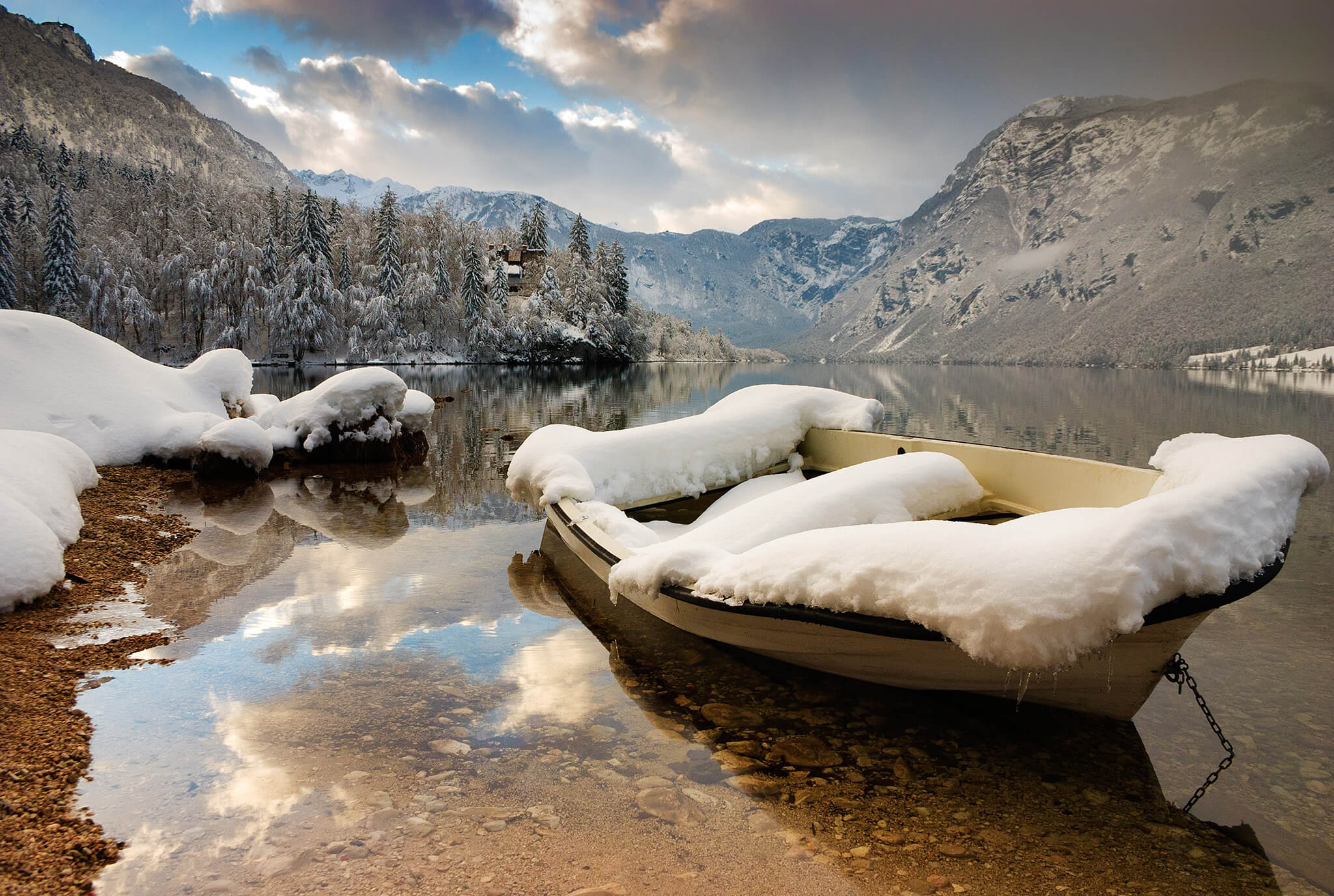
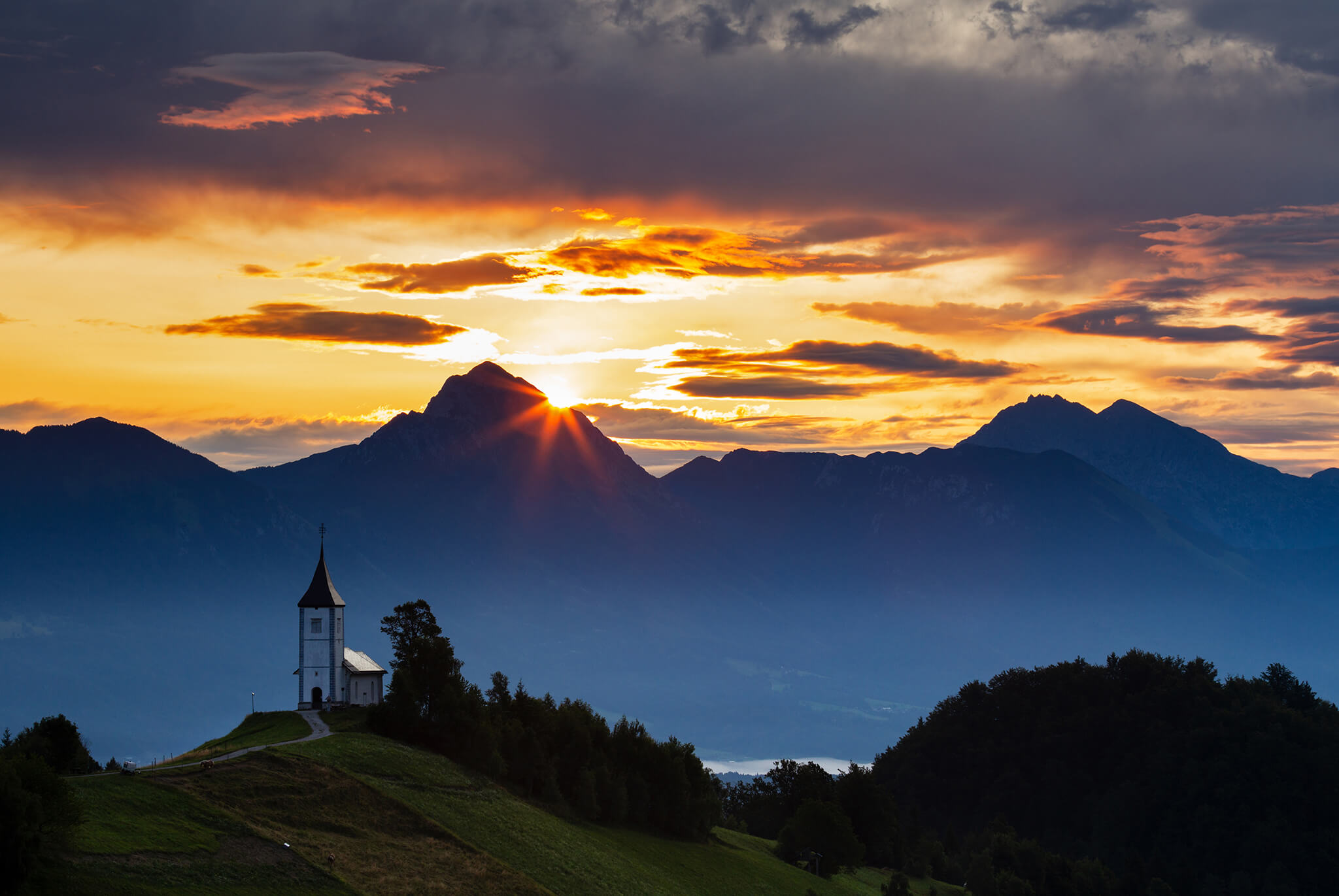
Under €100
Coffee Roasting Course in Ljubljana
In addition to offering their own brand of coffee from their café in Ljubljana, R&B offers a coffee-roasting course where they take you on the journey from ‘green to roasted bean’. This is the perfect experience for coffee lovers who want to learn more about how quality coffee is made. Price: €60 for 2 hour course. Buy: https://www.rb-cafe.com/store/coffee-roasting-course/introduction-to-roasting-class/
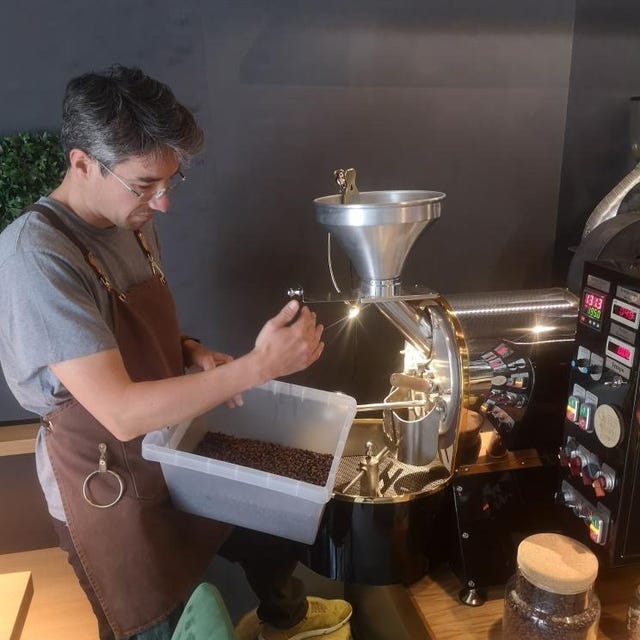
Under €200
Forge your own Slovenian Blade
Slovene blacksmith Emberborn runs courses where together, you’ll design and make a beautiful and completely unique knife. The entire experience takes around 8 hours and includes lunch and coffee at his forge in Cerknica. This is a fantastic gift experience that will leave you with a beautiful Slovenian ‘knife for life’. Check the Emberborn Instagram feed (https://www.instagram.com/emberborn_blades/ ) to sharpen your interest in these truly beautiful blades. Price: €160 for one person, dropping to €120pp if three people attend. Buy: http://emberborn.si/
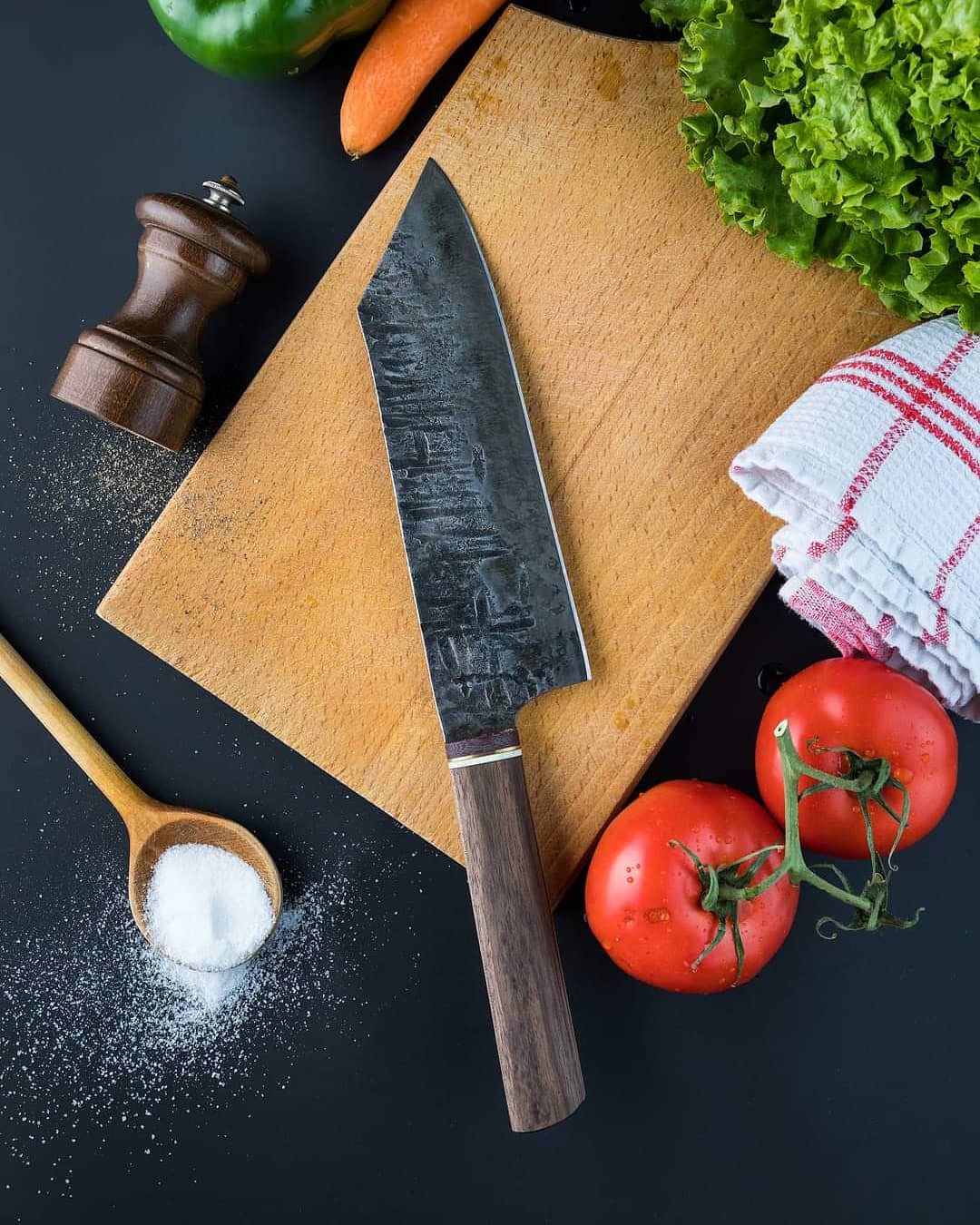
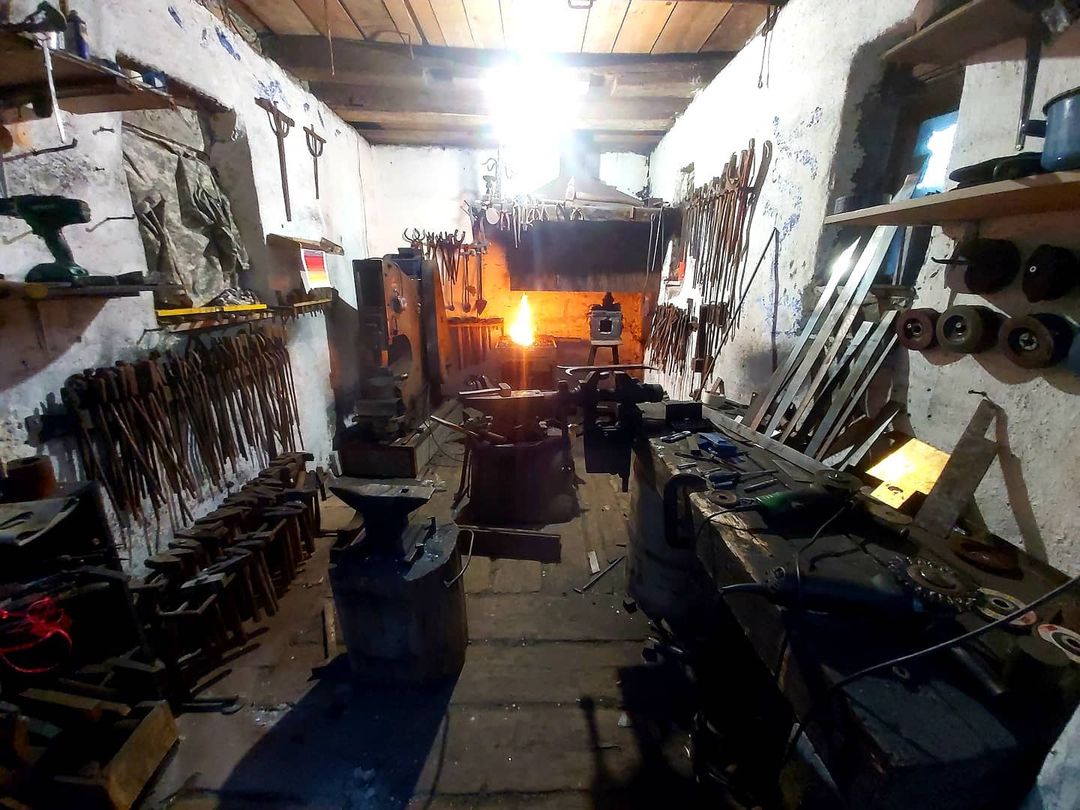
Latte Art Workshop in Slovenia
The Mariposa Coffee Roasters offer several coffee-themed workshops including one on Latte Art. This is a brilliant and unusual gift for latte-lovers where you’ll be schooled in the finer points of the process including how to create contrast and symmetry, and how to perfect your ‘microfoam’. Price: €120. Buy: https://mariposacoffeeroasters.si/en/product/latte-art-workshop/

Over €300
A Slovenian Bike
The legendary Ljubljana bike brand – Rog – has returned and is producing several redesigned variations of their most-famous model: The Rog Pony. The fact that hundreds of original Rog bikes are still being ridden around Slovenia (despite the original factory closing in 1991) is testament to the build-quality of the Rog brand so if you want some true two-wheel Slovenian style – get yourself one of these new models. Price: starting €329. Buy: https://rogbikes.com/
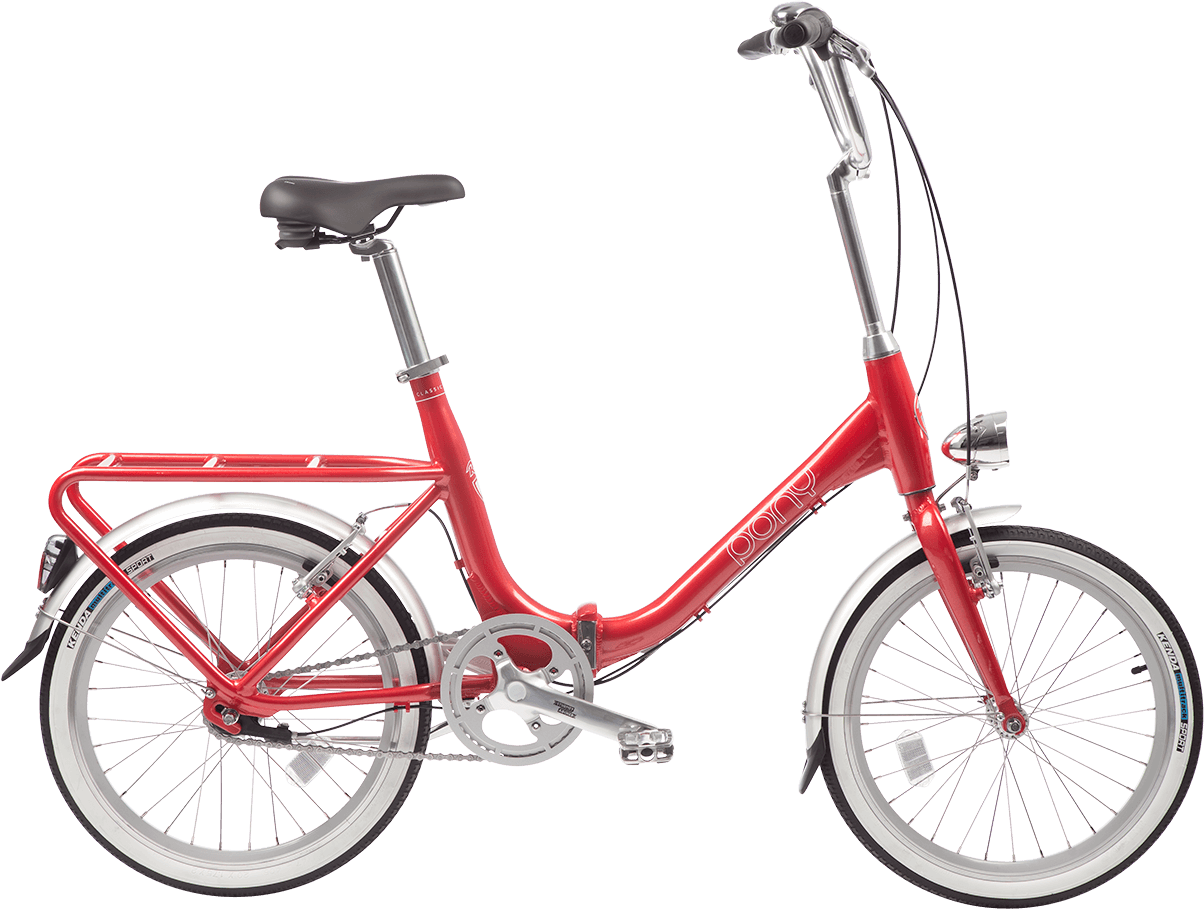
A Slovenian Snowboard
Who knew that Slovenia had one of the most interesting and unique snowboard-makers around? Moonchild make beautiful, handmade snowboards and splitboards, in highly unusual shapes. With some very experimental one-off designs as well as more standard production models, you get a uniquely Slovene snowboard when you purchase a Moonchild. Price: starting at €399. Buy It: https://www.moonchildsnowboards.com/
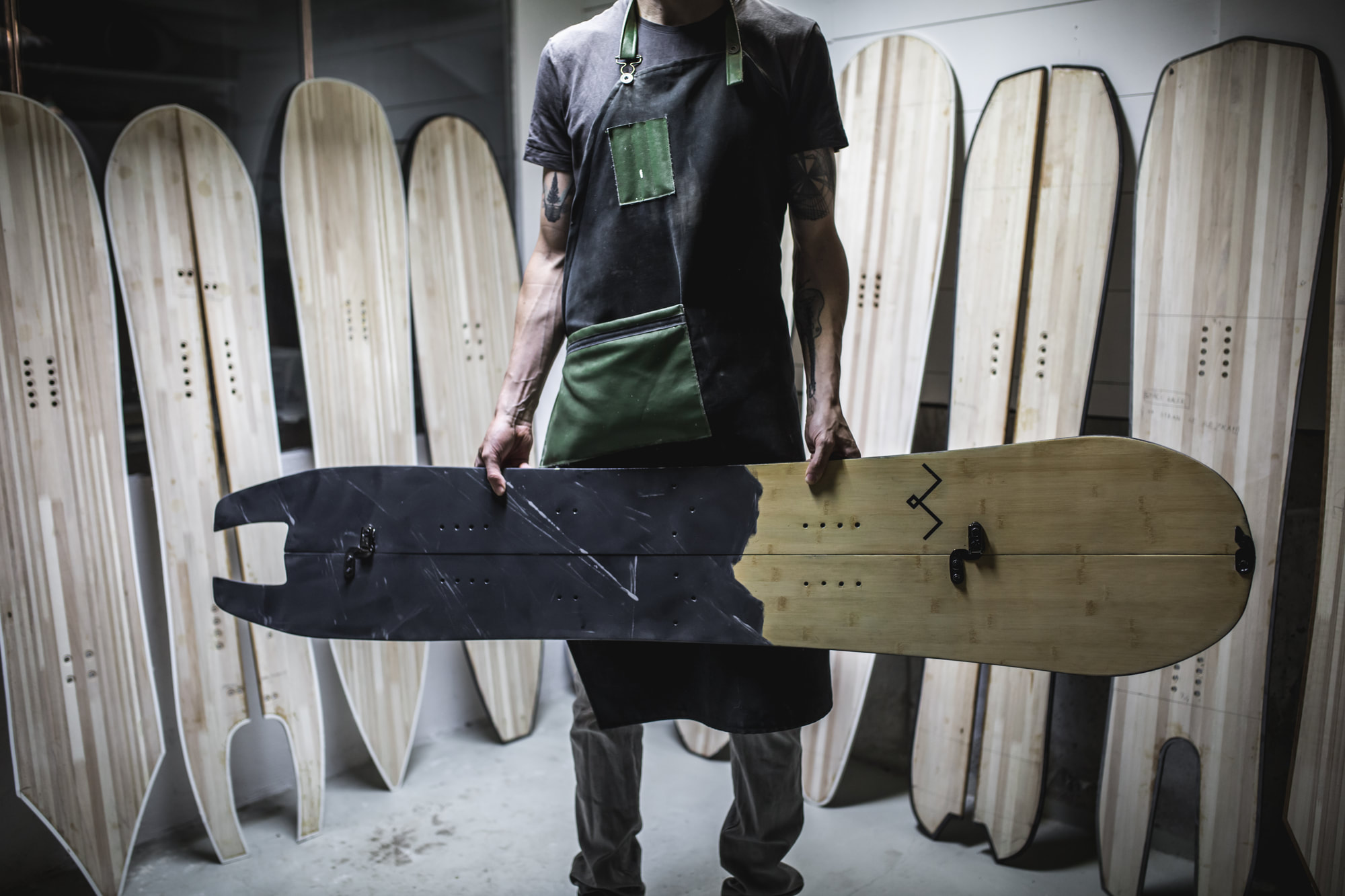
Sam Baldwin is the creator of BregDesign.com: Slovenia-inspired t-shirts, and owner of GrowMyStartup [https://GrowMyStartup.Business] consultancy.
STA, 14 November 2020 - Legendary Slovenian inventor Peter Florjančič has died aged 101, the Bled municipality confirmed for web portal Siol.net. Florjančič patented about 400 inventions, of which 43 reached the production phase. Some of his most popular inventions include plastic slide frames, a perfume atomiser and a plastic injection molding machine.
Born on 5 March 1919 in Bled, Florjančič lived in a number of countries, including Mone Carlo, Monaco, Austria, Switzerland, Italy, Germany and the US. He spent the last year of his life in a care home in Radovljica.
Apart from being an inventor known around the world, he was also an active athlete, musician and a film actor. At sixteen, he was the youngest member of the Yugoslav skiing team in the 1936 Olympic Games. He also appeared in The Monte Carlo Story, a 1956 Italian comedy-drama film featuring Marlene Dietrich.
"An inventor must have a cool head, always observing everything around him. Ideas are born in different ways. One can be born in a second and developed in a few days, while there are also ideas that need years to develop," he was quoted as saying on his website peter-florjancic.eu.
He thought his "best and most complex" invention was the perfume atomizer, followed by a plastic slide frame and a plastic injection molding machine.
His career started when he invented a loom. His other successful inventions include a work-out bed and plastic ice skates. He also invented the plastic zipper (1948), and the airbag (1957), neither of which were successful at the time because of the quality of the materials available. Both were perfected at later dates by other inventors.
The Technical Museum of Slovenia marked his 100th birthday with an exhibition Living a Dream, celebrating innovators. In 2007, Florjančič published his biography, Skok v Smetano (Jump into the Cream).
His life was also presented in a documentary directed by Karpo Godina Zgodba gospoda P.F. (The Story of Mr P.F.).
STA, 5 November 2020 - SPACE-SI, the Slovenian Centre of Excellence for Space Sciences and Technologies, posted on Thursday the first images made by their satellite Nemo HD, which was launched into space in early September.
The microsatellite, launched together with another Slovenian satellite on 3 September, will circle the Earth for the 1000th time this weekend, says SPACE-SI's website.
The centre posted what it termed "the first, historic image" the microsatellite made above eastern Slovenia on 18 September.
Although the image only shows clouds, the team is very happy that the sensitive optic system survived the pressure and acceleration during the launch.
The centre said that all of the satellite's vital systems were working well.
Nemo HD is producing panchromatic and multispectral images, helping monitor the Earth for agricultural, forestry, urbanist and maritime transport purposes.
The launch and calibration of the 65-kg satellite is expected to be completed at the end of December, to be followed by technological demonstrations.
Nemo HD and Trisat were launched as the first Slovenian satellites to be ever launch in space after a series of delays due to poor weather.
They are seen as an important milestone for Slovenia's and European space technology efforts.
The launch, which took place in French Guiana, was part of a project by the European space company Arianespace.


